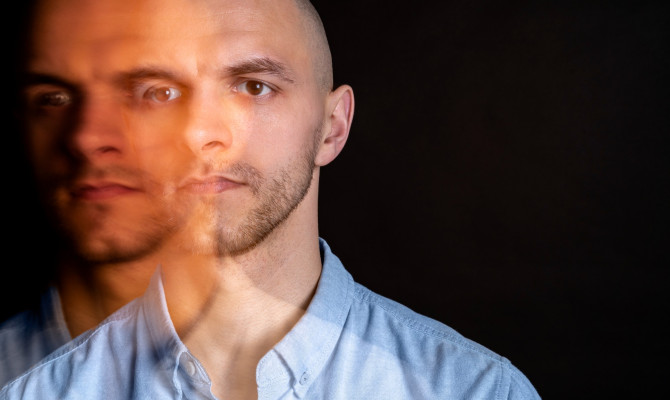Agoraphobia : Symptoms, Treatment, and Prevention

- Agoraphobia
- 16 Aug 2023
Overview
What is Agoraphobia?
Agoraphobia is a form of anxiety disorder that develops when a person feels trapped and helpless in a public or enclosed environment from which it may be difficult to leave. A person with agoraphobia, for instance, could be afraid to get in a car or a bus. It is defined as a fear that certain circumstances may result in an episode of panic or symptoms similar to a panic attack. Agoraphobic people struggle to avoid such events or places to avoid their phobias, preventing them from venturing into the world.
This article will cover some basic information about agoraphobia, including its causes, symptoms, risk factors, diagnosis, treatment, and complications.

Key Facts
- The word agoraphobia was coined in 1871 by a German psychologist named Karl Friedrich Otto Westphal.
- Agora, which means a gathering place or market, and phobia, which implies fear, are two Greek words.
- Around 1.7% of the population generally, according to the DSM-5, suffers from agoraphobia. 1Overview| Researched based study from Nlm.nih.gov
- According to the National Institute of Mental Health (NIH), a person’s lifetime frequency of agoraphobia is 1.3%, with a 0.9% yearly incidence rate. 2Overview| Researched based study from Nimh.nih.gov
Symptoms
Symptoms of Agoraphobia
Agoraphobia’s symptoms may include a fear of:
- Being in crowded areas or waiting in line.
- Leaving the house without a companion.
- Being in open areas like roads, parking lots, or shopping centers.
- Taking a bus, a plane, or a train as public transit. 3Symptoms| Researched based study from Msdmanuals.com
- Enclosed spaces, such as movie theaters, elevators, or little shops.
They could also go through:
- A feeling of helplessness.
- A sense of alienation or detachment from other people.
- They could exhibit an odd temper.
- A desire to spend a lot of time inside the house
Sometimes, the fear might intensify to the point that a person experiences a panic attack, which manifests as the following symptoms:
- Profuse sweating 4Symptoms| Researched based study from Nimh.nih.gov
- Feeling lightheaded
- A rapid heartbeat
- Disorientation
- Trembling body
- Flushed face
- Suddenly feeling sick
- Gastrointestinal discomfort
- Rapid shallow breathing
- Feeling cold on touch
- Chest pain
Causes
What are the causes of Agoraphobia ?
The exact cause for agoraphobia is undetermined; nevertheless, theories point to some regularly occurring reasons as follows:
- Early in life, having experienced loss or grief. 1Causes| Researched based study from Nlm.nih.gov
- Childhood trauma — for instance, a victim of child sex abuse.
- A history of other mental illnesses.
- Night terrors or early-life fears.
- Having overly protective parents.
- Genetic cause.
Can agoraphobia result from isolation?
No, isolation typically does not make someone agoraphobic. Agoraphobics prefer being isolated. However, people previously at an elevated risk for developing agoraphobia or individuals with other panic or anxiety disorders may experience increased fear of being in a crowd if they got used to prolonged isolation, especially in conditions like a COVID-19 pandemic lockdown. Also, depression and other anxiety disorders may worsen when people are isolated.
Types
Types of Agoraphobia
There are two types of agoraphobia and may include:
- Agoraphobia with panic disorder
- Agoraphobia without panic disorder
Agoraphobia with panic disorder
- Agoraphobia can affect about one-third of patients with panic disorder. 5Types| Researched based study from Clevelandclinic.org
- A person with a history of panic attacks may become so anxious about having another one that they try to avoid situations or environments where they feel their panic attack symptoms returning.
Agoraphobia without panic disorder
- A person who has never had a panic attack can acquire agoraphobia.6Types| Researched based study from Nhs.uk
- For example, someone who has experienced a violent crime or terrorist attack can start to fear leaving their home.
Risk factors
Risk factors of Agoraphobia
Agoraphobia risk factors may include the following:
- Genetic factors – may be physiological or inherited from parents or a relative.
- Age – From late adolescence or early adulthood to 35 years, people have a higher risk of developing agoraphobia. 1Risk factors| Researched based study from Nlm.nih.gov
- Having a nervous or anxious personality.
- A history of other mental illnesses, such as depression, eating, and anxiety disorders.
- Childhood factor – Risk may be increased by childhood trauma, early parent loss, or having overprotective parents.
- Recently traumatic experiences include losing a loved one or becoming the victim of a violent crime. 7Risk factors| Researched based study from Mayoclinic.org
- Being in a toxic relationship or with a controlling partner.
- Misuse of drugs or alcohol.
Diagnosis
Diagnosis of Agoraphobia
A doctor will interview the patient by asking the following questions:
- How does the person feel about stepping out of their house?
- Are there any situations or locations they stay away from due to their fears, and why do they cause anxiety?
- If the person depends on others to run their chores and grocery shopping?
- The person’s age at which they first experienced these concerns and how frequently they occur.
- They might also inquire about the person’s history of anxiety disorders or other psychiatric issues.
Blood tests
- To rule out other medical causes for an individual’s symptoms.
DSM Analysis
A person is diagnosed with agoraphobia, as per the Diagnostic and Statistical Manual of Mental Disorders (DSM) criteria 8Diagnosis| Researched based study from Nlm.nih.gov of the American Psychiatric Association, if they experience extreme fear or anxiety in two or more of the following:
- Making use of a bus or train as public transportation.
- Being in open areas like a parking lot or a shopping center.
- Being in a confined space like a car or an elevator.
- Being in crowded areas.
- Getting out of home all alone.
Treatment

Treatment of Agoraphobia
Management of agoraphobia may include the following :
- Psychotherapy
- Medication
- Lifestyle changes
Psychotherapy
- Psychotherapy, also known as talk therapy, involves regularly meeting with a therapist or other mental health professional.
- Psychotherapy may include cognitive behavioral therapy (CBT) and Exposure therapy.
Cognitive behavioral therapy (CBT)
- Effectively addresses and alleviates target symptoms, lessens other anxiety symptoms, and improves the patient’s quality of life.9Treatment| Researched based study from Mayoclinic.org
- It is the most common form of psychotherapy for people with agoraphobia.
Exposure therapy
- It can also help people overcome their fears by gently and slowly exposing them to the situations or places they fear.
- This may make their fear diminish over time.
Medications for Agoraphobia
Certain medications can help relieve agoraphobia or panic attack symptoms and may include:
- Selective serotonin reuptake inhibitors (SSRIs) – paroxetine or fluoxetine.10Treatment| Researched based study from Medlineplus.gov
- Serotonin and norepinephrine reuptake inhibitors (SNRIs) – venlafaxine or duloxetine.
- Tricyclic antidepressants – amitriptyline or nortriptyline.
- Anti-anxiety medications – alprazolam or clonazepam.
The medicines mentioned above should only be consumed with a doctor’s prescription, and people taking them should follow the doctor’s instructions and dosage properly.
Lifestyle changes to manage Agoraphobia
Although changing one’s way of life won’t cure agoraphobia, it can help people feel less anxious daily and better manage their fears:
- Performing regular exercise.
- Maintaining a balanced, healthful diet.
- Acquire relaxing skills, such as mindfulness, yoga, and meditation.
- Consistently try to breathe more slowly whenever you panic about something. Change your focus to your breathe.
- If you can, expose yourself to the circumstances you are afraid of gradually or get assistance.
- To better control your agoraphobia and other concerns, educate yourself on the subject.
- If you have a habit of smoking or drinking alcohol, try to stop it or stay away from them.
- Join a support group on the internet to connect with people going through similar events.
Prevention
Prevention of Agoraphobia
Agoraphobia cannot be entirely prevented. But the following steps could aid someone in managing their fear and anxiety:
- If one begins to have small fears about traveling to safe places, they should consider visiting there repeatedly until the fear is no more.
- If completing this task alone proves to be too challenging, enlist the assistance of a family member, friend, or professional.
- Seek therapy as soon as possible for anxiety or panic attacks.
- Get treated right away to stop anxiety or panic disorder symptoms from worsening.
Complications
Complications associated with Agoraphobia
- Being confined to their home for years without treatment and unable to leave.
- Excessive dependency on others for everyday work outside the home.
- Activities like jobs, school, socializing, etc., can be severely restricted by agoraphobia.
- Financial difficulty, loneliness, and isolation can cause distressing feelings and raise the possibility of depression or suicidal thoughts.
- The person may adopt unhealthy coping mechanisms to deal with their anxieties, such as comfort food, drugs, or alcohol, which can lead to or exacerbate existing health issues. 11Complications| Researched based study from Betterhealth.vic.gov.au
Prognosis
Prognosis of Agoraphobia
Agoraphobia rarely may go away on its own, possibly because people with it practice exposure therapy on their own. Treatment is necessary if agoraphobia impairs daily functioning. Other disorders like anxiety, depression, personality problems, or substance addiction all lower the likelihood of a good prognosis. Early diagnosis and appropriate treatment are crucial to help a person overcome this condition. A person may overcome agoraphobia quicker and more effectively with psychotherapy combined with medication and lifestyle modifications.
Any feedback on this article?
 This Articles content was accurate
This Articles content was accurate Very Informative Article
Very Informative Article I have a question or a comment
I have a question or a comment
 This article contains inaccurate content
This article contains inaccurate content This article was not helpful
This article was not helpful I have a question or a comment
I have a question or a comment
We appreciate your helpful feedback!
Checkout our social pages
References
-
National Library of Medicine
Agoraphobia | Overview
-
National Institute of Mental Health
Agoraphobia | Overview
-
MSD Manuals
Agoraphobia | Symptoms
-
National Institute of Mental Health
Panic Disorder: When Fear Overwhelms | Symptoms
-
Cleveland Clinic
Agoraphobia | Types
-
National Health Service
Causes - Agoraphobia | Types
-
Mayo Clinic
Agoraphobia | Risk Factors
-
National Library of Medicine
Impact of the DSM-IV to DSM-5 Changes on the National Survey on Drug Use and Health | Diagnosis
-
Mayo Clinic
Agoraphobia | Treatment
-
Medline Plus
Agoraphobia | Treatment
-
Better Health Channel
Agoraphobia | Complications



































